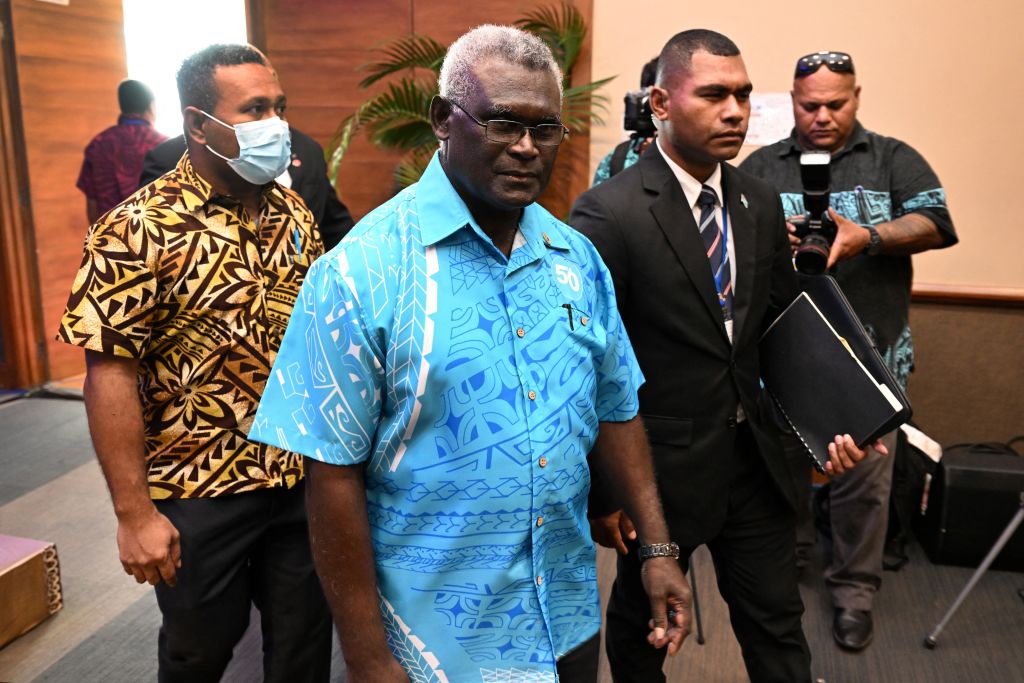
The Solomon Islands Broadcasting Corporation is again under threat. This time it’s not from gunmen during civil unrest but from a prime minister who appears to want to turn it into a government mouthpiece.
Twenty years ago, journalists at the SIBC were being threatened at gunpoint over their coverage of the conflict that disrupted the country between 1998 and 2003.
As the SIBC celebrates its 70th anniversary, there’s concern that the public broadcaster known as the ‘Voice of the Nation’ is about to become the voice of the Solomon Islands government or perhaps the voice of Prime Minister Manasseh Sogavare.
It barely survived the civil disturbances that led to the arrival of the regional peacekeeping mission RAMSI in 2003.
But it has survived the many challenges of the past 70 years because its staff believe in the public broadcaster’s critical role as a unifying force. For many Solomon Islanders, it is their only source of reliable, factual news and information.
But it now seems the Sogavare government wants to control the SIBC’s editorial policies for news, current affairs and on-air programs, ending its trusted role as an independent public broadcaster.
Although there’s no censorship of the SIBC yet, the move appears to be about the threat of control if the government decides that only its views should be heard, especially if there’s another crisis. Journalists often don’t need to be directly censored when they know they’re being monitored and watched by those in power.
Some observers wonder if Sogavare is planning to consolidate control of all information in the Solomons. His recent decision to sign a US$66 million ($103 million) concessional loan with China for the construction of 161 mobile communication towers suggests this might be his aim. First the radio station, then the mobile network. Don’t forget the government has also
passed legislation to postpone the general election, which was due next year, until April 2024.
The prime minister has previously shown his contempt for a free media. Two years ago, he threatened to ban Facebook after criticism of the government over its decision to switch allegiance from Taipei to Beijing and its handling of the distribution of funds during the Covid-19 pandemic.
As 150 journalists from across the Pacific gathered in Honiara this week for the
6th Pacific Media Summit, it became clear that the Sogavare government’s decision to take control of the SIBC was made without consultation with its board or management.
SIBC Chairman
William Parairato said there were never any meetings between the office of the prime minister and the corporation, only complaints about news and current affairs programs.
It’s also reported the government owes the SIBC SI$4 million ($766,000) in unpaid program sponsorship.
Parairato told the official opening of the SIBC’s 70th anniversary celebrations that the corporation has already started suspending government radio programs because of the unpaid debts.
He said the SIBC had made an operating surplus for the past 10 years except for 2017, ‘and to say the broadcaster had been operating at a loss as a SOE [state-owned enterprise] was not technically true’.
But this is the government line. The prime minister’s office says the government stripped the SIBC of its SOE status to rescue the organisation because it hadn’t made a profit since 2014. A spokesperson said it depended on government grants for its survival.
The spokesperson said the SIBC would maintain its editorial independence to ensure its content met basic broadcasting standards of fairness, balance and neutrality, which had been eroded in past years.
The perilous situation for
journalists in Solomon Islands has changed rapidly since the government pledged diplomatic allegiance to Beijing in 2019. Media freedom has deteriorated and journalists say leaders are now taking their cues from China.
Journalists know what it’s like to be targeted. At the height of the civil unrest that began in 1998, they were often threatened over their reporting. Two prominent journalists were forced to escape to Australia.
They included ABC Radio Australia’s stringer in Honiara, Sam Seke. He fled with the help of insiders in the Malaitan-controlled police force and the Malaita Eagle Force militant group after being warned his life was in danger.
Earlier this year, a freelance journalist relocated to Australia after her investigations into the relationship between Sogavare and a Chinese businessman resulted in harassment from police. She said the police told her an order for her arrest came directly from the prime minister.
She was advised by the Australian high commission to move to Australia for her safety.
More recently, Sogavare has again shown his dislike for independent journalism by threatening to
ban foreign journalists from entering the country.
The restriction followed a report by the ABC’s
Four Corners in August that investigated China’s growing influence in Solomon Islands.
As the region’s journalists discuss issues facing their industry, including the growing threats to media freedom, Sogavare is attending the first US – Pacific island leaders’ summit with President Joe Biden, called to target China’s growing influence and counter perceptions that Washington has abandoned the region.
At the centre of concern is Sogavare’s security deal with China, which was signed in April. It’s a deal he told the UN General Assembly at the weekend that his country is being unfairly criticised for. It’s not yet clear if this secret agreement with China is behind his decision,
reported by the ABC, to refuse to sign an 11-point declaration between the US and Pacific countries that had been expected to be signed at the summit. While a draft was leaked, the final version of the Chinese deal remains secret, preventing Solomon Islands media from reporting its details. Could there be a clause preventing the Solomons from signing a security deal with the US?
Disclosure: The author worked in 2005–06 as an adviser on the SIBC’s Media Strengthening Project, which was managed by the ABC. Print This Post
Print This Post